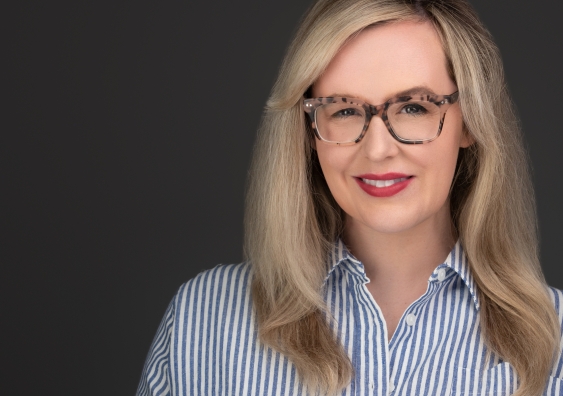New domestic violence framework to improve NSW first responder skills
2024-03-05T09:30:00+11:00

A comprehensive domestic and family violence risk assessment will help NSW services appropriately identify and manage dangerous situations.
Photo: Getty Images
A new framework will help organisations in NSW better assess and manage domestic and family violence risk.
UNSW academics have been engaged by the NSW Department of Communities and Justice to develop a new risk assessment framework to tackle the state’s high rates of domestic and family violence.
Dr. Emma Buxton-Namisnyk from UNSW Law & Justice, along with faculty researchers Dr. Althea Gibson and Peta MacGillivray, will lead the project to re-position NSW government and non-government services as more effective first responders to domestic violence.
The Common Risk Assessment Framework (CRAF) represents a pivotal system reform that will help ensure that all NSW services share the same understanding of domestic and family violence.
“Right now, many services have their own protocols for identifying and managing the risk of violence when people disclose a dangerous situation,” says Dr Buxton-Namisnyk.
“There is currently no comprehensive and overarching framework to ensure that victim-survivors receive a consistent, appropriate and safe response wherever they present.”
Unsafe responses can be harmful to victims. For example, Dr Buxton-Namisnyk’s award-winning policing research has identified that Indigenous women who are victims of violence may be incorrectly identified as offenders, leading to their criminalisation.
The importance of first responders
The CRAF development will build on Dr Buxton-Namisnyk’s long-term research in the area of domestic violence homicides.
“In my career, I have analysed over 3000 homicide cases spanning over a decade in NSW and across Australia, coming to understand how victims of domestic and family violence may experience and navigate different systems and services in fatal cases,” says Dr Buxton-Namisnyk.
The research showed Dr Buxton-Namisnyk how crucial it was for all organisations to be effective first responders, from schools through to healthcare providers, specialist services and police.
“To address domestic and family violence effectively we have to invest in integrated policy responses that offer a range of suitable pathways to safety,” she says.
“Specialist and frontline services in particular must be well-supported – especially Aboriginal Community Controlled Organisations, which provide vital and holistic services for First Nations people and often work with limited funding.”
From 2022 to 2027, the NSW Government has committed to developing a comprehensive, whole-of-NSW approach to preventing domestic family violence and sexual violence. This means the CRAF needs to complement existing first-responder protocols and align with the National Plan to End Violence Against Women and Children 2022-2032.
Promoting victim-survivor safety
Dr Buxton-Namisnyk says the framework is an investment in our community.
“All domestic and family violence behaviours are embedded in the risk of harm. This new framework is one way that people working in our state can more effectively recognise, respond to, and manage that risk. It is a vitally important policy infrastructure for our state and a really important way we can build competencies across the service system to promote victim-survivor safety,” she says.
We know that most people will either have experienced violence themselves or will know a victim-survivor [...]
Domestic and family violence is a serious social problem in Australia. Dr Buxton-Namisnyk says that despite decades of advocacy and reform the rates of violence remain unacceptably high.
On average, one woman a week is killed by a current or former intimate partner, and one in four women has experienced violence from an intimate partner or family member since the age of 15. In the 12 months to September 2023, according to the NSW Bureau of Crime Statistics and Research, police recorded 35,329 domestic violence assault incidents.
“Statistically, we know that most people will either have experienced violence themselves or will know a victim-survivor of violence in their family or amongst their friends,” says Dr Buxton-Namisnyk.
"The current National Plan makes it clear that responding effectively to domestic and family violence is not just an issue for governments, but it is an issue for all Australians."
National non-emergency support services are available to address broad-ranging aspects of domestic and family violence. In addition to support and counselling for victim-survivors of abuse, people who are concerned about their own use of violence or the safety of others can access useful information and guidance.
Where to seek advice
1800RESPECT: Confidential information, counselling and support for people impacted by domestic, family or sexual violence. Ph 1800 737 732
Men’s Referral Service: Counselling, information and referral service for those who wish to address abusive behaviour within themselves or others. Ph 1300 766 491
MensLine Australia: Support for men who experience family violence as well as other relationship, mental health, and behavioural concerns. Ph 1300 789 978
Kids Help Line: A free confidential 24/7 online and phone counselling service for young people aged 5 to 25. Ph 1800 55 1800
The Ageing and Disability Abuse Helpline: Find supportive information or services to report concerns of abuse regarding an older person or adult with disability. Ph 1800 628 221
13YARN: Aboriginal and Torres Strait Islander people can yarn without judgement when overwhelmed or experiencing a crisis. Ph 13 92 76
National Debt Hotline: Specialist counselling for people whose financial security has been impacted by coercive control behaviour. Ph 1800 007 007
Those interested in participating in the development of the new CRAF for NSW are invited to contact Dr Buxton-Namisnyk.
Media enquiries
For enquiries about this story, and interview requests, please contact Kate Newton, News & Content Coordinator, UNSW.
k.newton@unsw.edu.au
Related stories
-

Article on domestic violence policing of First Nations women wins criminology award
-

Unintended, but not unanticipated: coercive control laws will disadvantage First Nations women
-

How to identify and support women facing economic abuse
-

For domestic violence victim-survivors, a data or privacy breach can be extraordinarily dangerous


